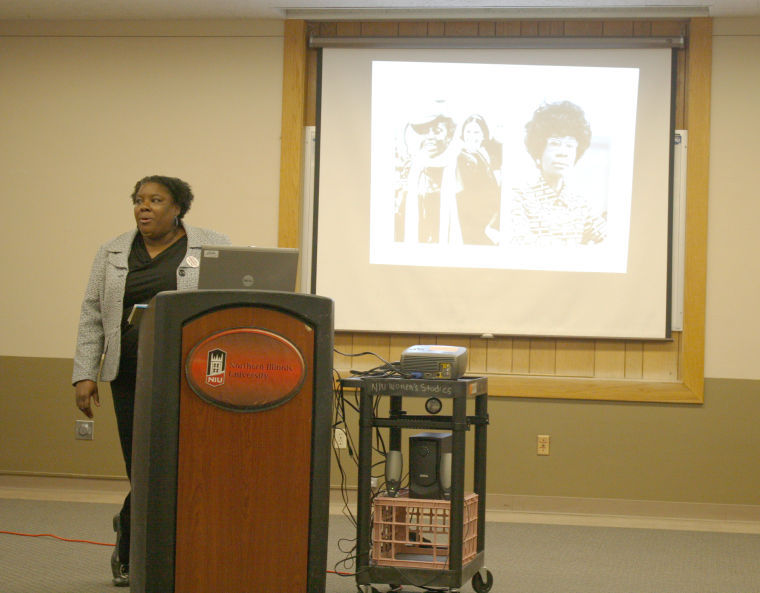Speaker: Remember black feminists
March 4, 2014
Students and faculty learned the importance of women of color in history rather than the typical approach to the feminist movement Tuesday.
Katrina Caldwell, Student Affairs assistant vice president, presented a PowerPoint on black women from the past and explained their significance in the American Feminist Movement.
Some of these woman included Shirley Chisholm, who became Congress’ first elected African-American woman in 1968, and Betty Friedan, who sparked a second wave of American feminism. Caldwell used quotes from people she’s worked with to support the idea it takes more than one culture to push for success.
“The talk of today was to understand the relationship of women of color and the American Feminist Movement and to inform students about the challenges that they faced trying to find a place in that movement,” Caldwell said.
Caldwell said the event was a way to remind students about the passage of the 1964 Civil Rights Act, the focus for NIU’s Women’s History Month series of events, on its 50th anniversary.
“Some students don’t know how to address current issues, and today goes back on what the people in the past have done. It’s informative and gives students ideas on how to come together and address them,” Caldwell said.
It is the Women’s Studies program’s goal to provide students this type of information to help alter their way of thinking in the NIU community, said Rebekah Kohli, Women’s Studies program coordinator.
“Caldwell came to us about the issue and we said, ‘Why not?’” Kohli said. “It’s our goal to continue the idea of feminism and other topics, and to recognize the problems in the past and do things better in the future.”
Senior sociology major Rebekah Guillotte said injustice, such as stereotyping, is all over campus and it is a student’s duty to say something about it.
“I want to learn more about the struggles that other cultures have gone through, and today helped a lot,” Guillotte said. “These events help students clarify and open their mind about these cultures and helps get rid of the stereotypes.”







